Y6 Looking at the Start of Treasure Island
£3.00
KS2 National Curriculum:
✓ Analysing an original story opening
✓ Using powerful verbs, adjectives, and adjectival phrases
✓ Story planning and writing
Activities include answering higher and lower order questions based on an extract from the start of Treasure Island and writing an alternative opening paragraph for the book. Activities also include looking at aspects of descriptive writing such as powerful verbs and adjectival phrases.
There is a five-minute evidence-based CPD activity at the end of this lesson which will develop classroom teachers’ skill set. This CPD consists of a research extract on thinking skills with a five-minute activity based on this extract.
Description
Recommended Year Group: Year 6
Focus: Exploring and rewriting narrative openings using powerful language Skills Developed:
• Analysing an original story opening
• Using powerful verbs, adjectives, and adjectival phrases
• Story planning and writing
• Peer and self-assessment
• Reading – Comprehension: Exploring themes and conventions; authorial intent
• Writing – Composition: Writing for audience/purpose; building atmosphere and character
• Writing – Grammar: Use of adjectives, adverbs, sentence openers
• Self and Peer Assessment: Reflective editing and feedback skills
These evidence-based learning (EBL) lessons are based on classroom practice that has been proven, by research, to maximise thinking, learning and attainment. From an extensive review of educational research, we identified the eight key classroom thinking and learning skills that were common across these research papers. We named these eight key skills “EBL skills”.
EBL skills have been proven by research to maximise learning because they combine the most productive thinking skills with the most effective learning behaviours. Each of our evidence-based learning lessons uses the English curriculum as a framework through which the eight EBL skills are delivered.
Teachers also have the opportunity to add to their own skill set or refresh their existing skills with our five-minute CPD activity, based on one of the EBL skills used in this lesson.
The skills in bold below are the EBL skills developed in this Treasure Island lesson. Click on each skill to learn more about that skill.
- Collaboration
- Thinking Skills
- Peer Assessment
- Peer Teaching
- Self-Assessment
- Metacognition
- Self-Regulation
- Independent Learning
1 review for Y6 Looking at the Start of Treasure Island
Only logged in customers who have purchased this product may leave a review.
Related products
-


Y5 & Y6 Looking at Dialogue in Treasure Island
£3.00 Add to basket £3.00Add to basket
£3.00Add to basketKS2 National Curriculum:
✓ Recognising the purpose of dialogue in storytelling
✓ Modernising dialogue
✓ Planning and writing a story opening with a stolen mapThis lesson looks at the role of dialogue using an extract from Treasure Island and how to punctuate dialogue. Activities include answering higher and lower order questions as well as writing the opening paragraph of a pirate story after considering three alternative ways of opening the story.
There is a five-minute evidence-based CPD activity at the end of this lesson which will develop classroom teachers’ skill set. This CPD consists of a research extract on collaboration with a five-minute activity based on this extract.
VIEW -


Y6 Science Fiction is Alien to me
£3.00 Add to basket £3.00Add to basket
£3.00Add to basketKS2 National Curriculum:
✓ Structuring narrative writing; using descriptive language and varied sentence structures.
Activities in this lesson include a reminder of the features of science fiction stories, a step-by-step guide to structuring a science fiction story (which uses guided questions), using adjectival phrases and finally, writing a science fiction story.
There is a five-minute evidence-based CPD activity at the end of this lesson which will develop classroom teachers’ skill set. This CPD consists of a research extract on peer assessment with a five-minute activity based on this extract.
VIEW -


Y5 Looking at a Character in Treasure Island
£3.00 Add to basket £3.00Add to basket
£3.00Add to basketKS2 National Curriculum:
✓ Identifying character traits through description
✓ Using evidence from the text
✓ Descriptive writing continuation in the character’s voice
Activities include answering higher and lower order questions based on an extract from the book and writing a new paragraph for Treasure Island.
There is a five-minute evidence-based CPD activity at the end of this lesson which will develop classroom teachers’ skill set. This CPD consists of a research extract on metacognition with a five-minute activity based on this extract.
VIEW -
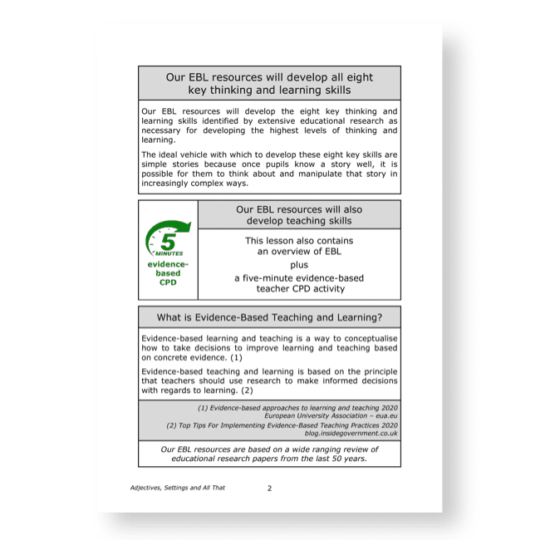

Adjectives, Settings and All That
£3.00 Add to basket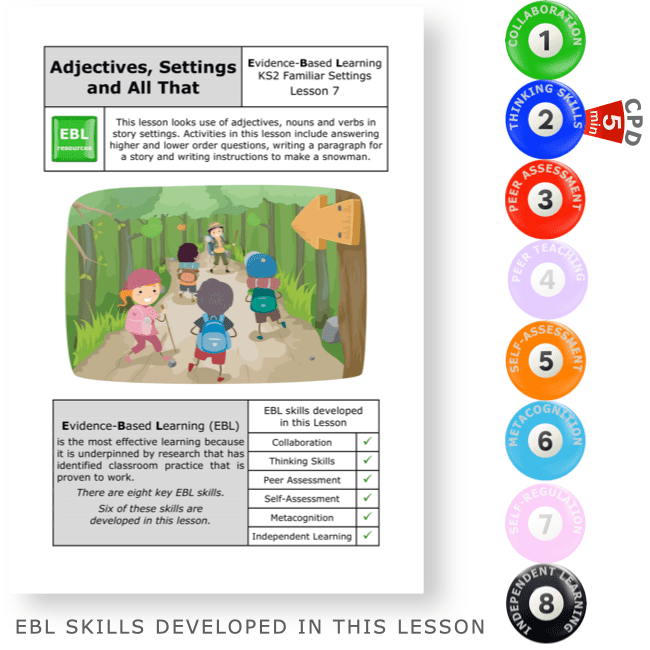 £3.00Add to basket
£3.00Add to basketThis lesson looks use of adjectives, nouns and verbs in story settings. Activities in this lesson include answering higher and lower order questions, writing a paragraph for a story and writing instructions to make a snowman.
There is a five-minute evidence-based CPD activity at the end of this lesson which will develop classroom teachers’ skill set. This CPD consists of a research extract on thinking skills with a five-minute activity based on this extract.
VIEW

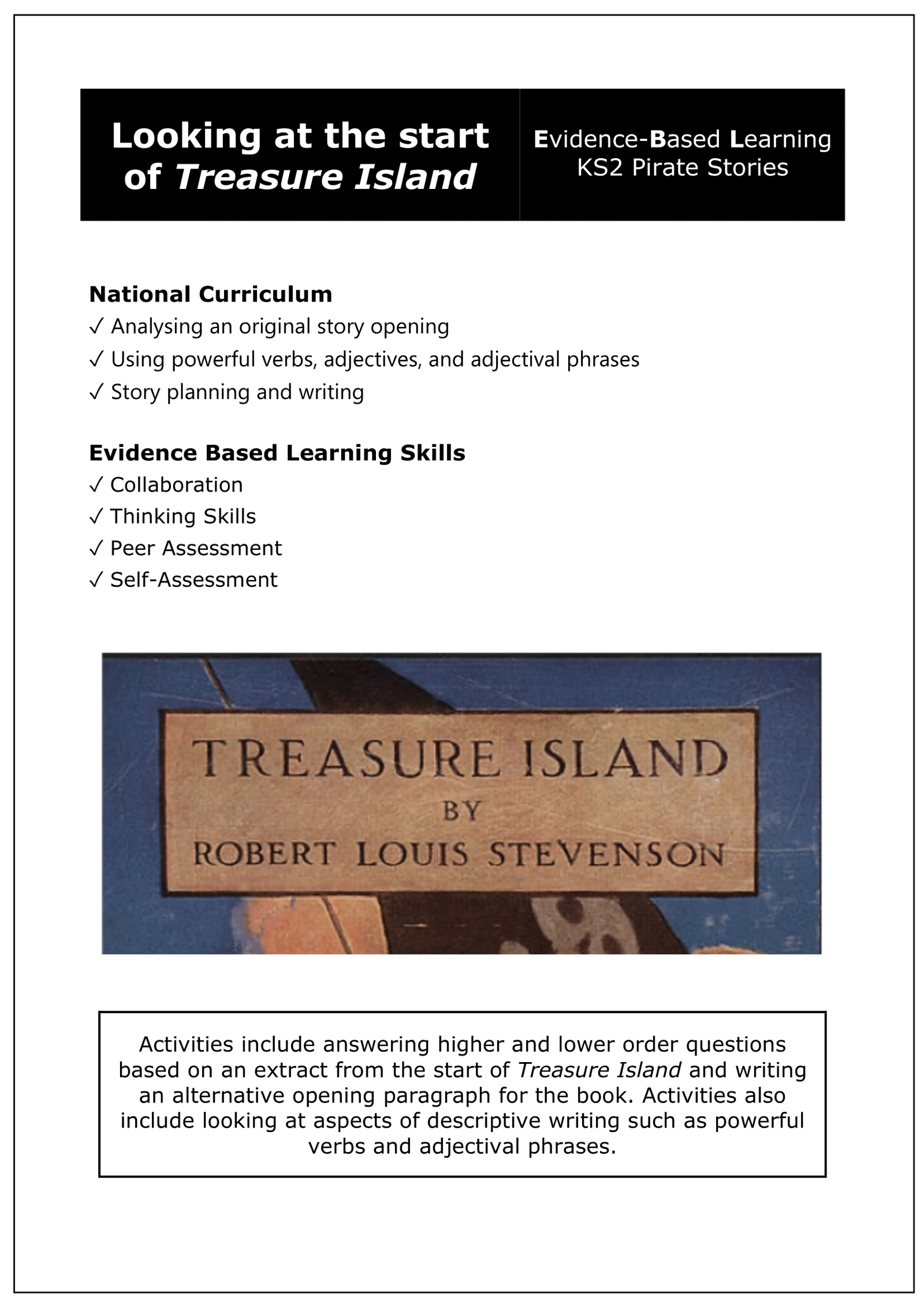
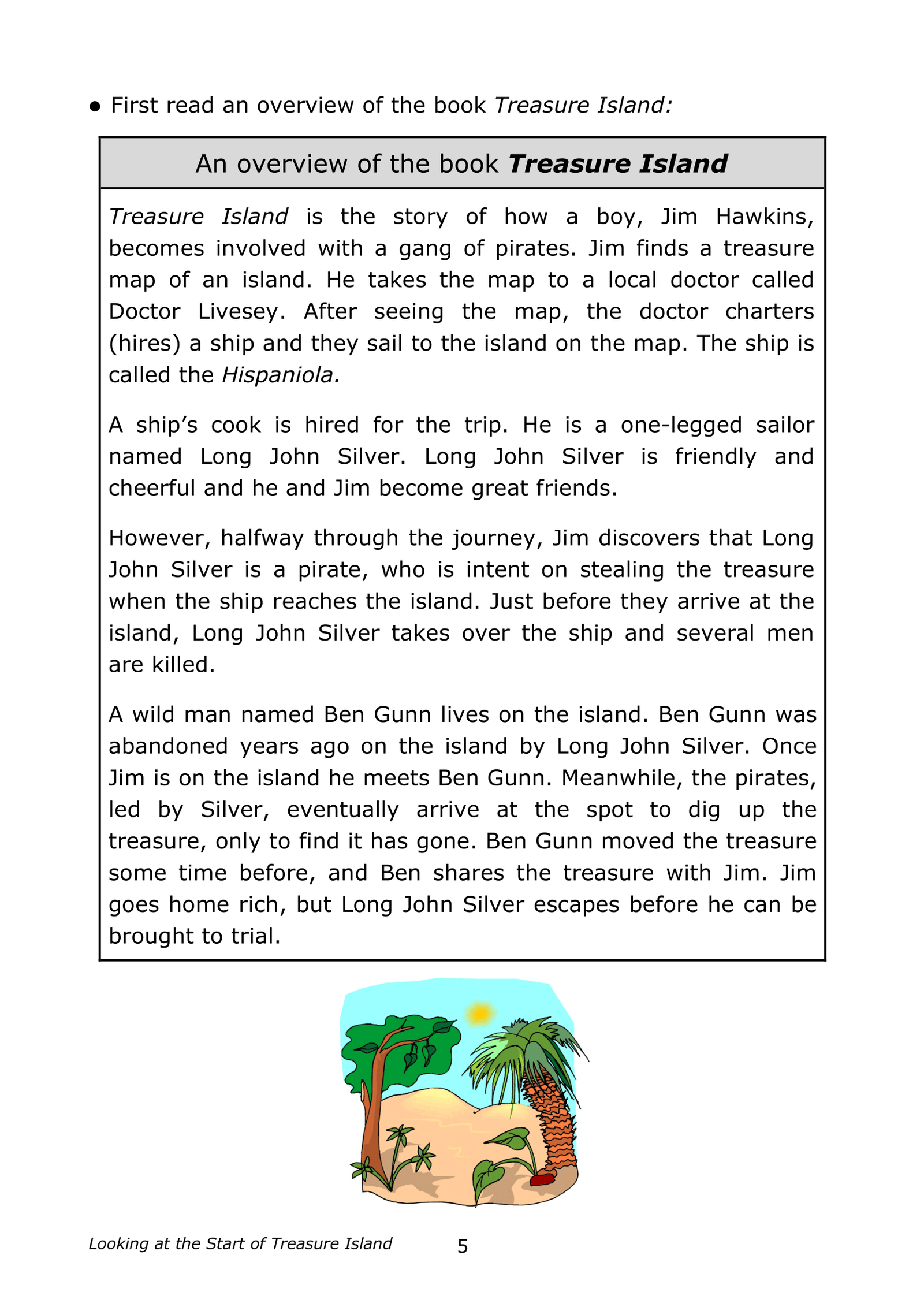

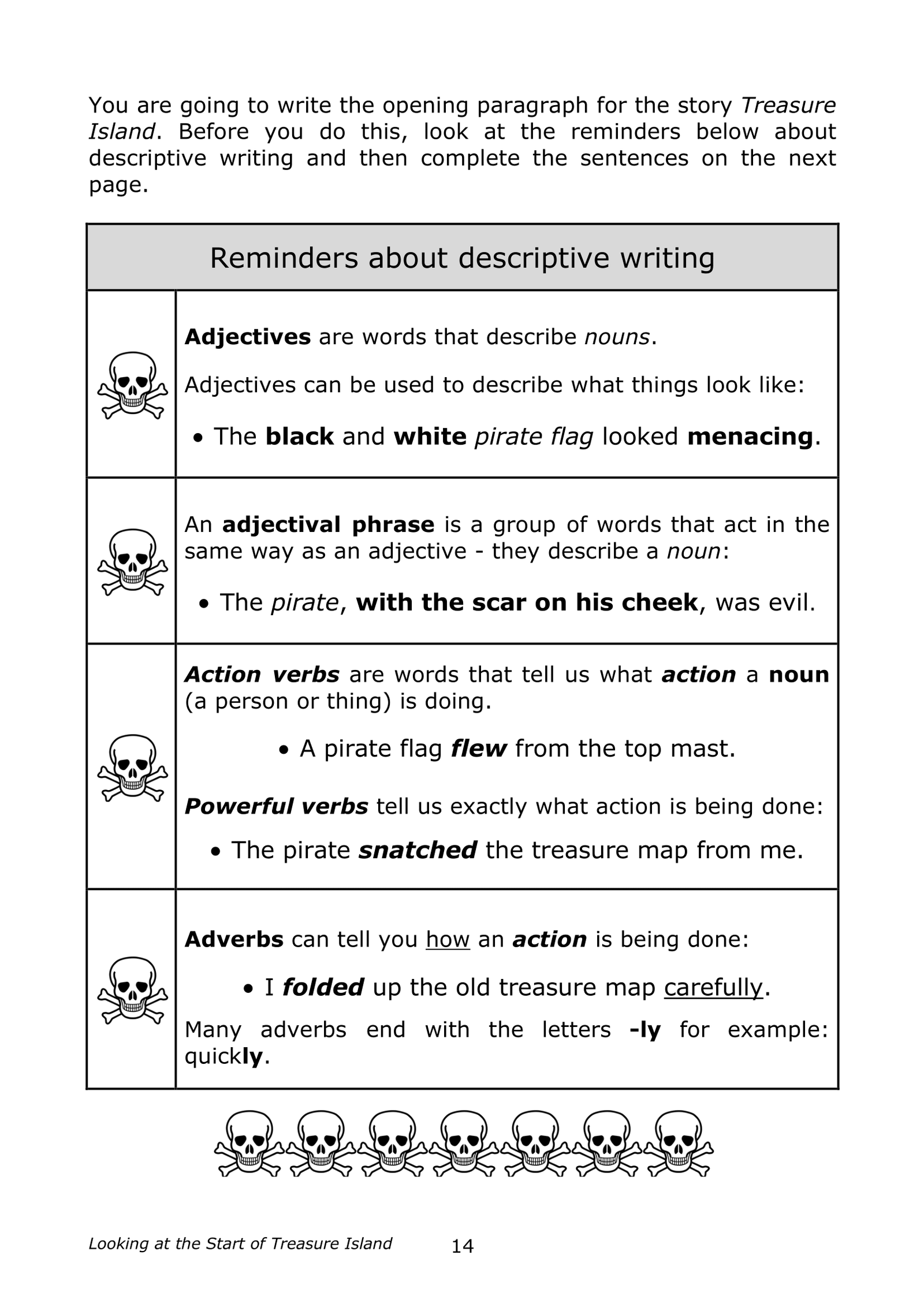

Philipem (verified owner) –
We asked a.i. to review this lesson. This is what it said:
Looking at the Start of Treasure Island Rating: ⭐⭐⭐⭐⭐
Are you looking for an engaging lesson that combines teaching core English skills with developing research-backed learning strategies? Look no further than the resource “Looking at the Start of Treasure Island” from EBL Resources.
This pirate-themed lesson not only works on essential reading and writing skills, but scaffolds collaborative thinking strategies that maximise student learning. Students practice higher and lower order questioning based on an extract from the classic novel while honing descriptive writing techniques like using powerful verbs and adjectival phrases.
But the real treasure is the focus on Evidence-Based Learning (EBL) skills. Activities build collaboration, peer assessment, self-assessment, and critical thinking abilities – capabilities proven by educational research over decades to drive the highest levels of student achievement.
What really sets this lesson apart is the fantastic 5-minute CPD (Continuing Professional Development) for teachers. This bite-sized training develops your own skill set by diving into research on higher vs. lower order questioning. It’s an easy way to keep your practice grounded in solid evidence.
With everything you need, this versatile lesson works for Key Stage 2 English or guided reading. Immerse students in a literary adventure while equipping them with learning strategies that pay dividends.
My Rating: ⭐⭐⭐⭐⭐ Highly recommend this engaging, well-designed resource that develops core EBL competencies alongside literacy skills. Set your students on a course for learning success!